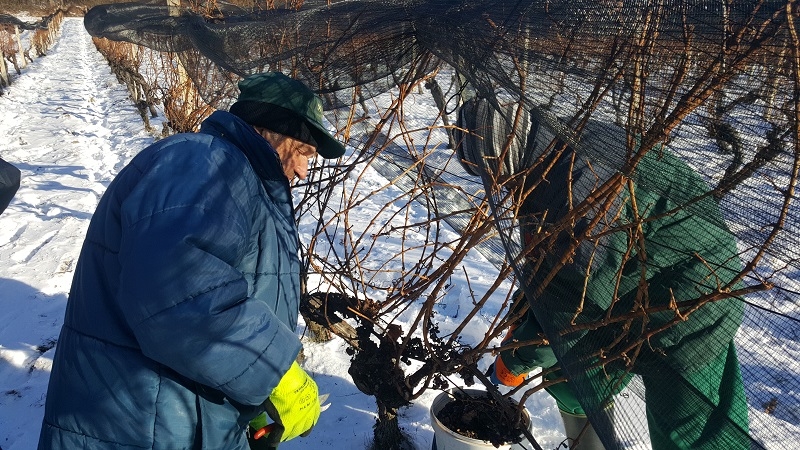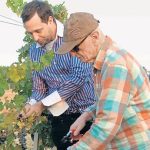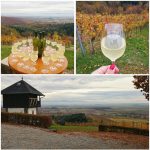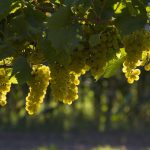For a short while, the vineyards in Hrnjevac at 400 metres above sea level were abuzz again. Around fifty pickers, well dressed in warm winter suits, picked grapes of superior quality in an ice harvest for Kutjevo, a wine company in Croatia’s eastern region of Slavonia.
“It’s so sweet it sticks to our gloves. We came to the vineyard on foot from neighbouring villages, early this morning… Such cold spells are rare in this area, but not unknown,” said Ivan from Trenkovo while approaching the table with mulled wine and rum tea.
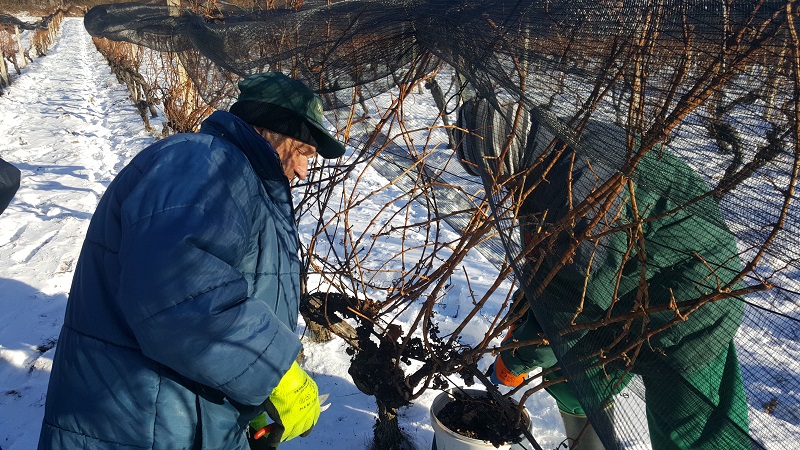
To confirm this year’s three-hour harvest of ice grapes is special, chief enologist of Kutjevo Ivan Marinclin will spend the next two years with his colleague, enologist Zrinka Vinković Jergović, focusing on this expensive wine reaching market prices between 300 and 700 kuna for a 375 ml bottle. To remind those who have forgotten: in ice harvests grapes are picked at -7 Celsius or lower in frozen state, with at least 127 Oechsls of sugar in them.
“The Traminer grapes, harvested on just over a hectare, had a lot more Oechsl, over 200. The concentration is high and such must generally gives superior wine. Last year we picked Rhine Riesling and Traminer. Every year we traditionally leave the Hrnjevac vineyard for the harvest, our highest position. It is one of the more regarding positions as at these heights the grapes can survive the longest. There is no problem with botrytis, downy mildew…,” pointed out Marinclin and emphasizing he is also a fan of ice wines which every connoisseur drinks with desserts on special occasions.
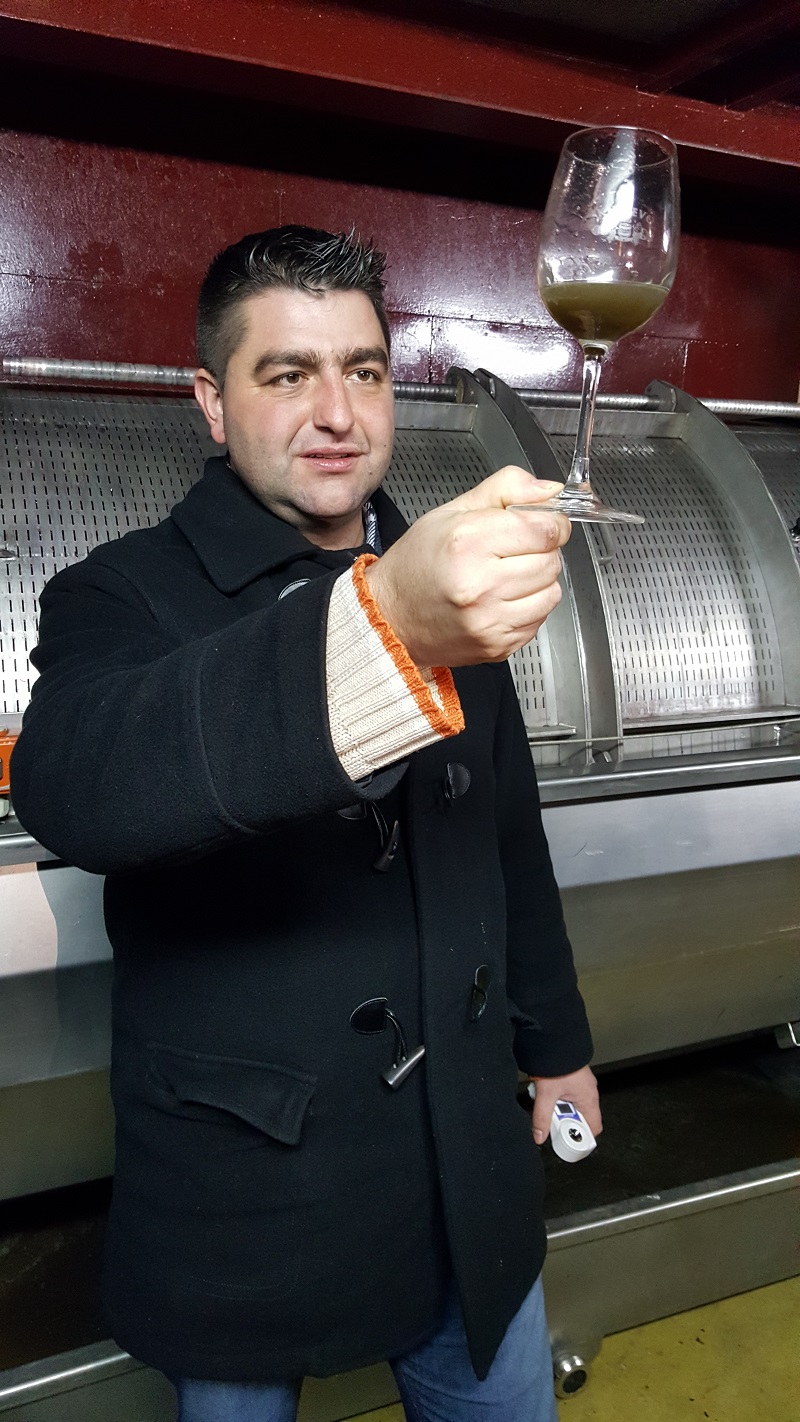
The one item journalists noticed right away in Hrnjevac vineyard is the black protective net which was not around last year. Wine growers and wine makers are aware of the large toll taken by birds so they protected the vineyard. They used to have vineyard guards, also resorting to chasing away brids with cannons in the last several years.
It is known Croatian ice wines are at the very top of the world as we have some experience in them, but it should be noticed there aren’t many wineries who produce them. It’s a risky production as an ice harvest is not possible each year. In case of a bad year and high temps, the grapes can be used for a predicate wine, late harvest or selective harvest of dried grapes as Kutjevo did in 2011.
The pickers from the Kutjevo area gathered around a tonne of grapes. It wasn’t difficult as the fine berries were easy to spot on vines without leaves, except the cold which was in the way. In a normal Traminer harvest, a hectare yields around 5-12 tonnes.
“An ice harvest is traditional with us and the fermentation is done with natural yeasts, we always expects the maximum nature can give. As for predicates, Kutjevo still has wines from the 1950s and 1960s. It’s hard to say if they were late or select harvests, as the archive is so large. One thing is certain, I consider this harvest a true harvest and the wine will be fantastic,” concluded Marinclin, who took journalists to the cellar to taste the fine must.
It was pure honey, a natural greenish colour. When grapes arrive to the cellar, they must be processed in as little time as possible. They have to remain frozen, the concentrated must drips out and is then off to fermentation which is long and takes over a year.
Reminding us that Kutjevo, according to certain data, has been practicing ice harvests for around two hundred years, was Mladen Pavić, Management President of Kutjevo.
“The ice harvest has also been legally defined in the last years. This year has certainly been one of the better ones so it will surely be great for an ice predicate wine! As Kutjevo has won awards at prestigious world competitions, we expect this wine to surpass other successes. Such harvests yield up to seven times less grapes than usually, but predicate wines are a matter of prestige,” said Pavić, mentioning Kutjevo is set to replace around 120 hectares of existing vineyards with a different assortment, mostly with Graševina.
Then at noon the vineyards were deserted again, pickers back in their warm homes, starling back to check if any grapes were left, while journalists gathered around a vineyard stew in Kutjevo’s restaurant!
And all were pleased.

